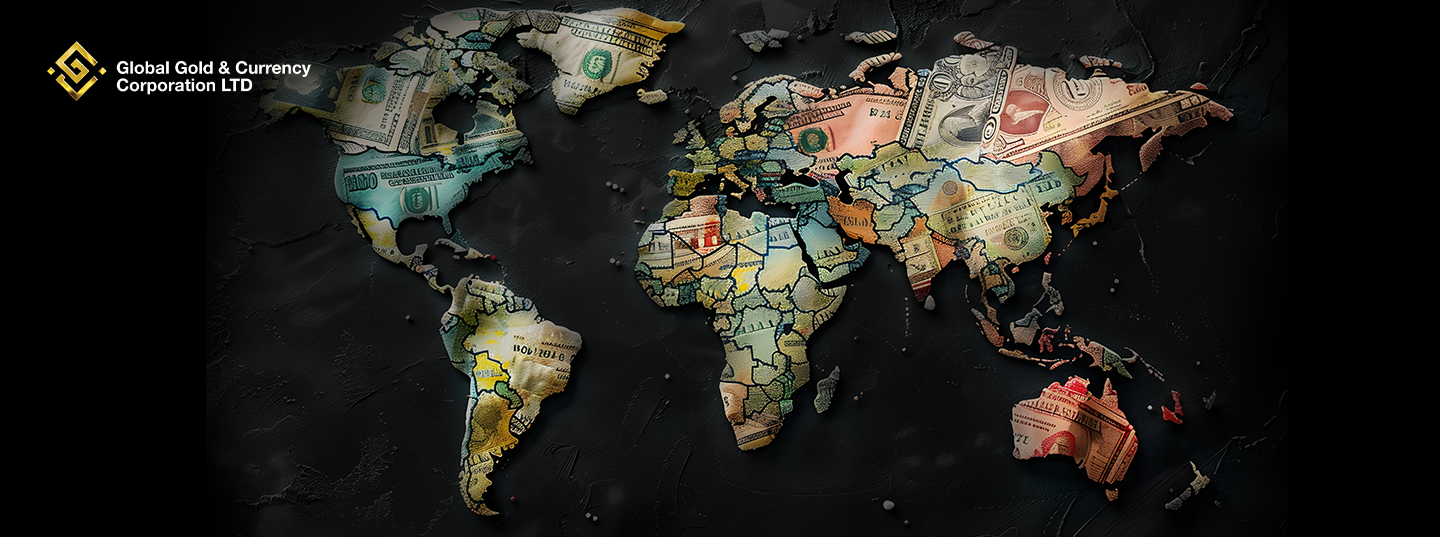
How RBI’s Focus on Forex Reserve Diversification Protects India from Market Shocks
In an increasingly uncertain global economy, foreign exchange reserves management has become more critical than ever. The Reserve Bank of India (RBI) has recently emphasized that diversification of forex reserves is a top priority. This strategic shift is aimed at safeguarding India's economy from market volatility, currency fluctuations, and geopolitical risks. But what exactly does forex reserve diversification mean, and why is it so important?
Let’s explore how the RBI’s focus on a diversified forex portfolio helps maintain financial stability, protect the Indian rupee, and prepare the country for future economic shocks.
Forex reserves, or foreign exchange reserves, are the external assets held by the central bank in foreign currencies. These include foreign currency assets, gold reserves, Special Drawing Rights (SDRs), and reserve positions in the International Monetary Fund (IMF).
The primary role of forex reserves is to support currency management, facilitate international trade, and maintain investor confidence. For a growing economy like India, healthy forex reserves act as a financial cushion during times of global uncertainty.
Why Forex Reserve Diversification Is CrucialThe concept of forex reserve diversification means spreading these assets across different currencies, assets, and countries. The RBI is moving away from a dollar-heavy reserve strategy and adopting a more balanced mix of currencies such as the Euro, Japanese Yen, British Pound, and Chinese Yuan. Here’s why this is important:
1. Minimizing Currency RiskHolding the majority of reserves in one currency, especially the US Dollar, exposes India to high currency risk. If the dollar weakens due to inflation or economic slowdown, the value of India’s reserves could sharply decline. A multi-currency reserve strategy helps mitigate this risk.
2. Shielding Against Geopolitical TensionsIn today’s world, geopolitical conflicts and sanctions can disrupt access to reserves held in specific regions. By holding diversified reserves across different economies, the RBI ensures that India remains insulated from such geo-economic shocks.
3. Improving Liquidity and FlexibilityIn the event of a global financial crisis, diversified reserves give the RBI multiple options for liquidity. Whether it’s gold, euros, or IMF holdings, the central bank can access the most liquid and stable assets when needed.
4. Enhancing Return on AssetsDifferent assets and currencies provide varying returns. A well-diversified reserve allows the RBI to maximize yield while minimizing exposure to volatile markets.
RBI’s Forex Reserve Diversification StrategyWhile the RBI does not publicly disclose the exact composition of its foreign currency assets, it follows a globally aligned strategy that includes:
- Holding reserves in a basket of currencies
- Investing in sovereign bonds and low-risk financial instruments
- Allocating a portion to gold reserves as a hedge against inflation
- Maintaining liquidity to meet short-term obligations
This strategic diversification helps the RBI support the stability of the Indian rupee and build investor confidence in India’s external position.
The main goal of diversification is risk management. During periods of economic instability, such as the 2008 financial crisis or the COVID-19 pandemic, having access to diversified reserves allows the RBI to step in and stabilize the foreign exchange market.
For instance, if the dollar weakens or U.S. interest rates fall, India’s exposure to gold or other currencies can offset potential losses. Similarly, if trade with one country is disrupted, reserves in other currencies can still support import payments and external debt servicing.
Impact on the Indian EconomyThe RBI’s strategy directly supports:
- Currency stability: Reducing rupee volatility
- Inflation control: By managing import costs effectively
- Investor confidence: Signaling sound economic governance
- Crisis readiness: Providing a buffer in case of capital outflows
This long-term strategy plays a key role in India's macroeconomic stability and positions the country as a resilient emerging market.
In summary, the RBI’s focus on diversifying forex reserves is a strategic, forward-thinking approach to managing India’s financial future. It aligns with global best practices and prepares India to weather global economic turbulence, currency wars, or interest rate shocks.
As global markets become more unpredictable, forex reserve diversification is not just a safeguard, it’s a necessity.
Sources:
RBI has a plan to keep India’s forex reserves safe from external
shocks (Economic Times)
Diversification remains most important way to manage risks (Times of
India)







